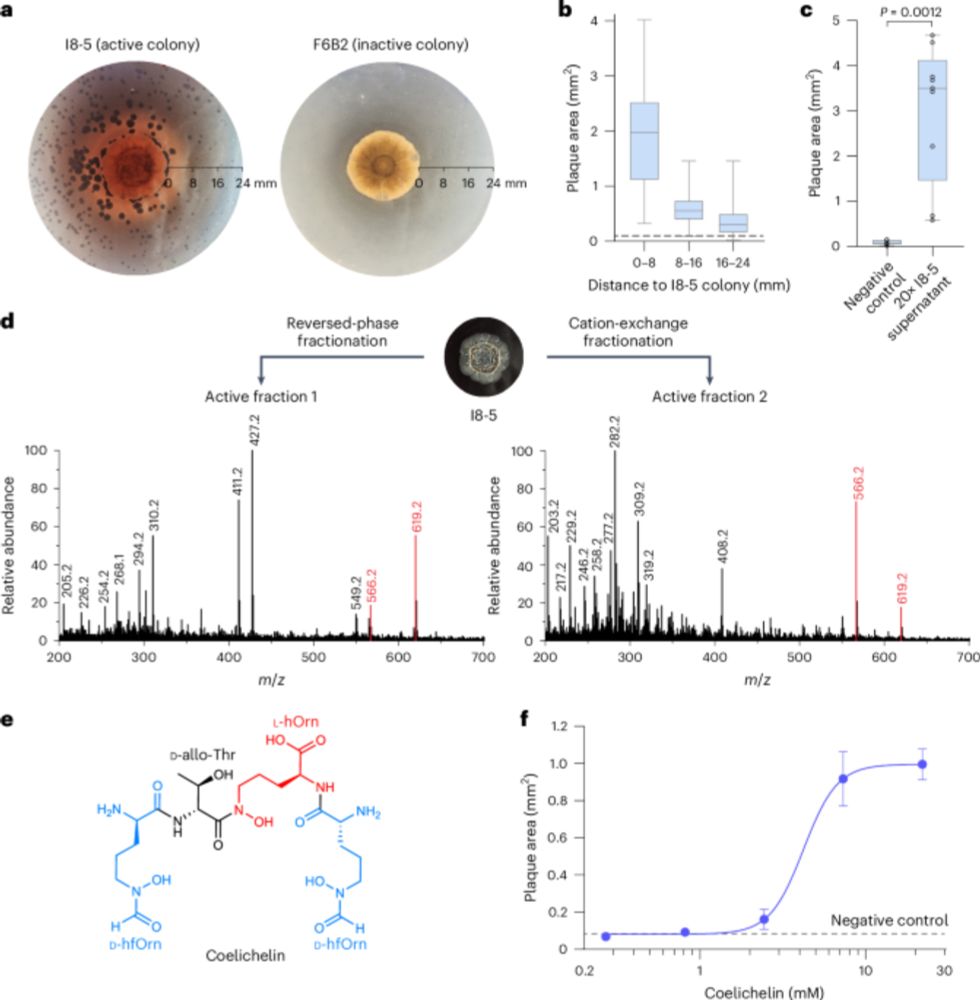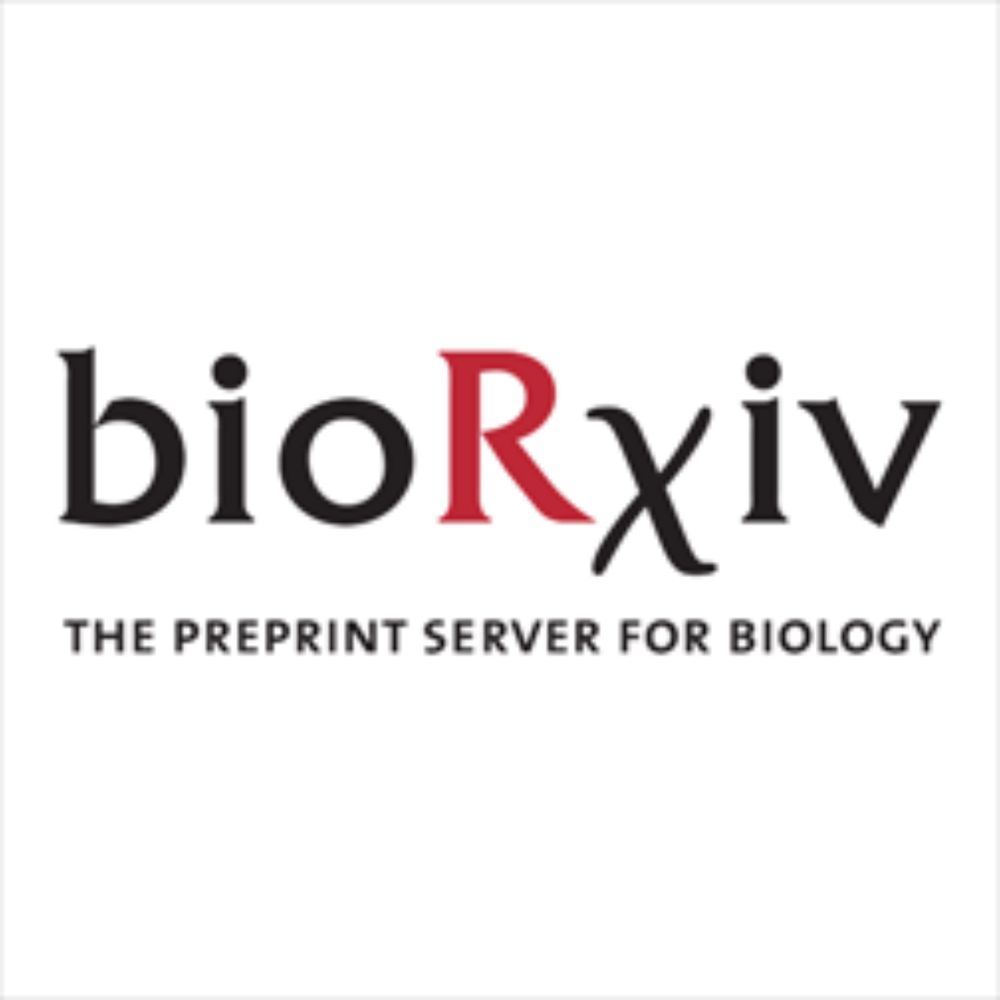It was my pleasure to visit you!
26.02.2026 13:53 — 👍 1 🔁 0 💬 0 📌 0It was my pleasure to visit you!
26.02.2026 13:53 — 👍 1 🔁 0 💬 0 📌 0
"Explaining something with the wrong model can be worse than not explaining it at all."
www.nature.com/articles/s41...

🎙️ Morgane THION, Collège de France, will talk about "microglia in the developing brain: from colonization to functions" on Monday, 9 February, at 11am at Paris Brain Institute.
👉 More information: https://parisbraininstitute.org/agenda/scientific-lectures-morgane-thion
What if the immune system held a key to brain health ? 🧠
Research by Aleksandra Deczkowska @adeczkowska.bsky.social at the Institut Pasteur shows constant immune–brain dialogue, and how modulating immunity could help prevent or treat neurological diseases.

Tumor-associated macrophages directly stimulate neurite outgrowth, revealing a dual role in enhancing intratumoral nerve growth and promoting neural repair after severe spinal cord injury @cp-immunity.bsky.social
www.cell.com/immunity/ful...

Why do so few cancer cells manage to form metastases - and what helps the rare ones succeed?
Delighted to share our first publication of 2026 🎉🎉, led by the outstanding @lbejarano.bsky.social 🤩, where we reveal some insights into this - focusing on brain metastasis 🧠🧪🔬
www.cell.com/cell-reports...

A researchers’ propensity for risky projects is passed down to their doctoral students — and stays with trainees after they leave the laboratory
go.nature.com/4qvaffO

Multidisciplinary training, over time, produces the highest impact people
www.science.org/doi/10.1126/...

Microbes weaponizing secondary metabolites to make rivals vulnerable to phage attack 🧪🦠
www.nature.com/articles/s41...

This #Preprint reports that B6 (but not wild mice) have a truncated PDL2, missing an active intracellular signalling domain:
"Surprisingly, in C57BL/6J (B6) mice PD-L2 has only a 5-amino acid intracellular domain, and the same is true for several other laboratory mouse strains"
#Immunology
When your PI presents your work
15.12.2025 12:00 — 👍 219 🔁 29 💬 6 📌 8congratulations @dbikard.bsky.social !!! well deserved!
10.12.2025 14:29 — 👍 2 🔁 0 💬 0 📌 0
I am thrilled to share our latest work led by @zurisullivan.bsky.social in collaboration with @moffittlab.bsky.social ! We find that the brain encodes distinct, pathogen-specific sickness states across behavior, physiology, neural activity, and gene expression 1/6
www.biorxiv.org/content/10.6...
Come to be our colleague! Center of Paris, excellent facilities, research spanning the whole range of basic and biomedical life science topics, enthusiastic and collaborative colleagues, crème brûlée every Friday... What else could one want?
08.12.2025 10:56 — 👍 35 🔁 31 💬 1 📌 1
🔬 Call to create junior research groups at the Institut Pasteur
Focus: Infectious diseases, host-microbe interactions, vaccines
Special interest: AI methodologies
📅 Deadline: Feb 9, 2026
👥 2-12 years post-PhD
Apply now 📝 research.pasteur.fr/en/call/crea...
#JobOpportunity #Research

Evidence continues building that oxidized lipids drive inflammasome activities in health and disease. A beautiful study shows a link to multiple sclerosis, with a role for inflammasomes and IL-1 in pathology. Kudos to the authors on this exciting discovery.
www.nature.com/articles/s41...
We would like to thank our amazing collaborators @nicogaudenzio.bsky.social Xinzhong Dong, Martin Hasselblatt and Friederike Jonsson, members of @aleksdelab.bsky.social and amazing platforms @institutpasteur.bsky.social - would not happen without You!
03.12.2025 09:28 — 👍 1 🔁 0 💬 0 📌 0Overall, activation of CP mast cells or CPEC secretion in early life derails brain development; therefore the presence of mast cells at the neonatal CP is a “vulnerability”, this is how pathologies associated with mast cell activation in neonates may exert their long lasting effect on the brain.
03.12.2025 09:28 — 👍 0 🔁 0 💬 1 📌 0

Finally, using chemogenetics, we showed that triggering CPEC responses at birth leads to long-term cognitive alterations, highlighting the lasting impact of early-life immune activity at the brain’s borders
03.12.2025 09:28 — 👍 1 🔁 0 💬 1 📌 0
When we activated these neonatal mast cells, we saw a serotonin-dependent increase in CPEC secretion — along with CSF pollution by intracellular content.
03.12.2025 09:28 — 👍 1 🔁 0 💬 1 📌 0
These mast cells were present only at birth and showed a connective-tissue–type phenotype.
03.12.2025 09:28 — 👍 1 🔁 0 💬 1 📌 0
Next, to understand how immune cells shape CP function, we performed ligand–receptor analysis. This revealed that mast cells may directly interact with CP epithelial cells (CPECs) through serotonergic signaling.
03.12.2025 09:28 — 👍 1 🔁 0 💬 1 📌 0
This is consistent with another (very) recent preprint from @bethstevenslab.bsky.social lab: www.biorxiv.org/content/10.1... but some pro-B and pre-B cells are still present in adult CP!
03.12.2025 09:28 — 👍 2 🔁 0 💬 1 📌 0
By dissecting their subtypes, we discovered that these cells resemble developing B cells typically found in the bone marrow of adults.
03.12.2025 09:28 — 👍 2 🔁 0 💬 1 📌 0
One striking change was a surge of B cells around P15, prompting us to examine them more closely.
03.12.2025 09:28 — 👍 2 🔁 0 💬 1 📌 0
Using CITE-seq, we mapped the CP immune landscape across postnatal development and found that the CP is a highly dynamic niche with major shifts in immune cell composition.
03.12.2025 09:28 — 👍 2 🔁 1 💬 1 📌 0We wanted to understand how immune cells shape brain maturation through the choroid plexus (CP), a brain border which produces the CSF, key for brain development, and is exposed to peripheral immune factors.
03.12.2025 09:28 — 👍 2 🔁 0 💬 1 📌 0
Excited to share our new preprint: “Local B cell maturation and mast cell regulation of choroid plexus function in early life” www.biorxiv.org/content/10.1... , initiated in the lab by Laetitia Travier and led by the one and only @fakesamir.bsky.social
03.12.2025 09:28 — 👍 28 🔁 15 💬 3 📌 2
These are the 10 art classroom rules of Corita Kent (artist, teacher, social justice advocate and nun). They are true for any creative process, especially Rule 8: DON’T TRY TO CREATE AND ANALYZE AT THE SAME TIME. THEY’RE DIFFERENT PROCESSES. (i.e. night science / day science).
02.12.2025 01:50 — 👍 29 🔁 3 💬 0 📌 1Early-life stromal niches orchestrate B lymphopoiesis at the brain's borders https://www.biorxiv.org/content/10.1101/2025.11.27.690844v1
30.11.2025 08:16 — 👍 5 🔁 3 💬 0 📌 1